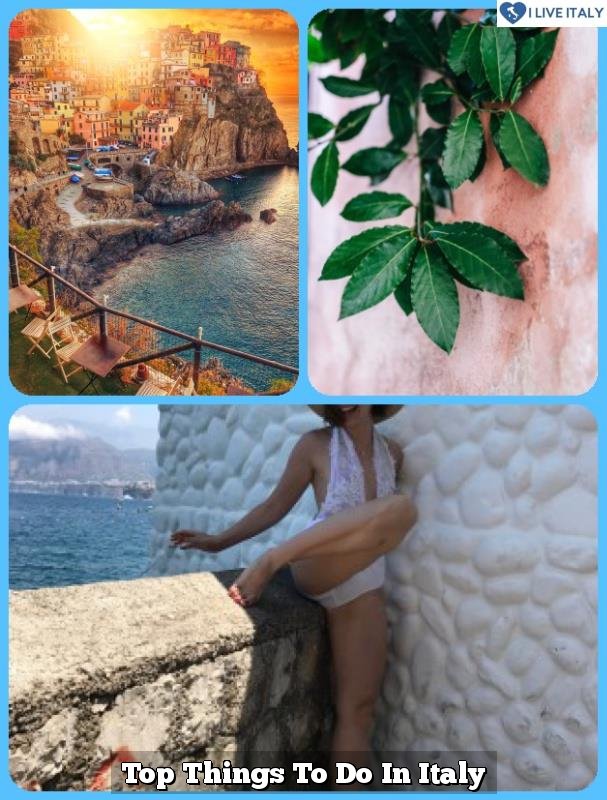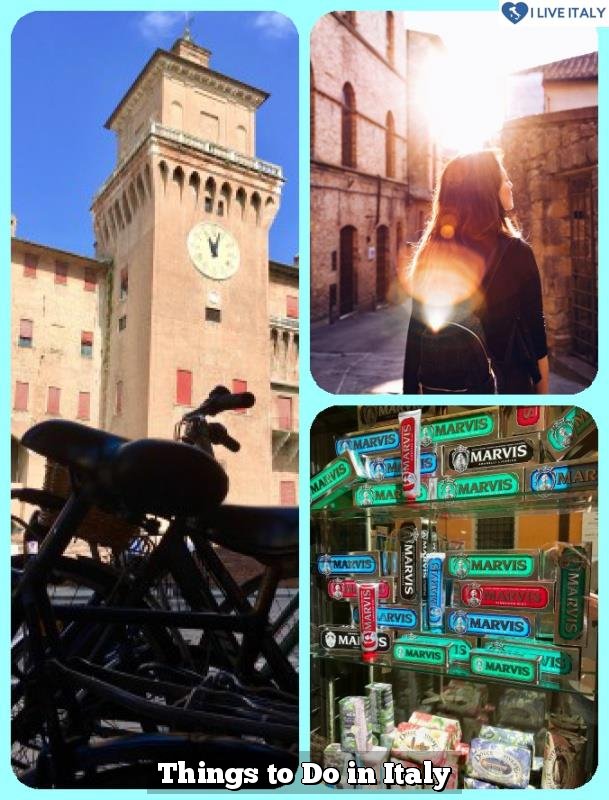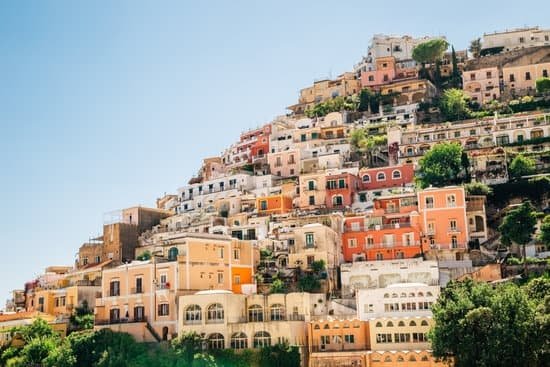Are you planning a trip to Italy? Before you pack your bags and hop on that plane, there are a few important things to know. From visa requirements to cultural norms, understanding the essentials can help ensure a smooth and enjoyable experience in this beautiful country.
Italy is known for its rich history, art, and cuisine, making it a popular destination for travelers from around the world. However, navigating a new country can be challenging without the right information. This article will cover everything you need to know before traveling to Italy, so you can make the most of your visit.
From obtaining the necessary travel documents to understanding local customs and etiquette, this comprehensive guide will provide valuable insight into preparing for your Italian adventure. With these tips and recommendations in mind, you can set off on your journey with confidence and excitement. So sit back, relax, and let’s dive into the essential information for traveling in Italy.
Visa and Passport Requirements
When traveling to Italy, it is important to be aware of the visa and passport requirements in order to ensure a smooth entry into the country. For citizens of many countries, a visa is not required for short stays in Italy. However, it is always best to check the specific requirements for your nationality before traveling. Additionally, make sure that your passport is valid for at least six months beyond your planned departure date from Italy.
Tips for Obtaining a Visa
If you do require a visa to travel to Italy, be sure to apply well in advance of your trip. Contact the Italian embassy or consulate in your home country for detailed instructions on how to apply for a visa. It is important to provide all necessary documentation and fulfill any requirements in order to secure your visa before your travel dates.
Ensuring Passport Validity
Before traveling to Italy, double-check the expiration date of your passport. If it is set to expire within six months of your trip dates, consider renewing it before you travel. This will prevent any potential issues when attempting to enter Italy or other Schengen Area countries. Additionally, it’s wise to have several copies of your passport stored securely during your travels so that you can more easily replace it if lost or stolen without being stranded.
Currency and Money Matters
When traveling to Italy, it’s important to be prepared when it comes to managing currency and money matters. The currency used in Italy is the Euro (EUR), so it’s essential to familiarize yourself with the current exchange rate before your trip. One of the best ways to handle money while traveling in Italy is by using a combination of cash and card payments.
Finding ATMs and Exchanging Currency
ATMs are widely available in Italy, especially in larger cities and popular tourist destinations. It’s important to notify your bank about your travel plans before departing for Italy, as this can help prevent any issues with using your cards abroad. When it comes to exchanging currency, it’s advisable to do so at official currency exchange offices or banks to ensure that you receive a fair rate.
Tips for Managing Money
When using credit or debit cards in Italy, be aware of any foreign transaction fees that may apply. It’s also a good idea to carry some cash on hand for smaller purchases, as some establishments may prefer cash payments. Additionally, consider using a money belt or hidden pouch to securely carry your cash and cards while exploring Italian cities.
By being informed about currency and money matters in Italy, you can ensure a smooth and hassle-free travel experience without having to worry about financial complications during your trip.
Language and Communication
When traveling to Italy, it’s important to be prepared for language and communication differences. Italian is the official language of the country, and while many Italians also speak English, especially in tourist areas, it’s always helpful to know some basic Italian phrases.
Learning simple greetings, asking for directions, and ordering food in Italian can go a long way in making your trip more enjoyable and immersive. Additionally, having a translation app or pocket dictionary can be useful for times when you need to communicate but don’t speak the language.
Italians are known for their passionate gestures and expressive communication style. Don’t be surprised if conversations involve a lot of animated hand movements and loud voices – it’s just part of the culture. It’s also important to be mindful of personal space and body language when interacting with locals. Eye contact is valued in Italian culture, so maintaining respectful eye contact during conversations is considered polite.
If you’re unsure about something or need assistance while in Italy, don’t hesitate to ask for help. Most Italians are friendly and accommodating, especially towards tourists who make an effort to respect their customs and language. By brushing up on some Italian phrases and being open to different modes of communication, you can have a more enriching experience during your travels in Italy.
Transportation and Getting Around
When traveling to Italy, it’s essential to plan how you will get around the country. Italy offers various options for transportation, making it relatively easy to explore. Here are some tips for getting around in Italy:
- Trains: Italy has an extensive and efficient train system that connects major cities and towns. The Trenitalia and Italo companies operate the majority of train services in Italy. It is advisable to book train tickets in advance, especially for long-distance journeys.
- Buses: For destinations not accessible by train, buses are a convenient alternative. Local bus services are available in most towns and cities, providing a cost-effective way to travel short distances.
- Rental Cars: If you prefer more flexibility in your travels, renting a car may be the best option. Keep in mind that driving in Italian cities can be challenging due to narrow streets and limited parking.
Additionally, understanding the Italian road system is crucial if you plan on driving. There are toll roads (autostrade) where you must pay a fee to travel, as well as limited traffic zones (Zona Traffico Limitato) in city centers where access is restricted.
Overall, familiarizing yourself with the transportation options available will help make your travel experience in Italy seamless and enjoyable.
Cultural Norms and Etiquette
Italy is a country rich in tradition and culture, and it’s important to be aware of the cultural norms and etiquette when visiting. Here are some key things to keep in mind:
- Greetings: Italians are known for their warm and friendly greetings. Handshakes are common, but close friends and family members may opt for a kiss on the cheek. It’s important to make eye contact and greet people with enthusiasm.
- Dining Etiquette: Meals in Italy are a social affair, and there are several dining customs to be aware of. The “dolce far niente” or “sweetness of doing nothing” mindset means that meals are meant to be enjoyed at a leisurely pace. It’s also customary to wait until everyone has been served before beginning your meal.
- Dress Code: Italian fashion is world-renowned, and Italians take pride in their appearance. When visiting churches or other religious sites, both men and women should dress modestly by covering their shoulders and legs. In general, avoid wearing athletic attire or beachwear when exploring the city.
Understanding these cultural norms will not only show respect for the Italian way of life but also enhance your travel experience as you immerse yourself in the local customs. By embracing the culture of Italy, you can create meaningful connections with locals and gain a deeper appreciation for this beautiful country.
Safety and Health Precautions
Italy is generally a safe country for travelers, but it’s still important to be aware of potential safety concerns and take precautions to protect yourself and your belongings. Like any other popular tourist destination, Italy has its share of pickpockets and petty theft, especially in crowded tourist areas.
To avoid becoming a victim, it’s advisable to keep your valuables secure and be mindful of your surroundings. Additionally, be cautious when using ATMs and refrain from displaying large amounts of cash in public.
When it comes to health precautions, there are a few things to keep in mind while traveling in Italy. The country has excellent healthcare facilities, but it’s still wise to have travel insurance that covers medical treatment and emergencies.
It’s also recommended to be up-to-date on routine vaccinations before traveling to Italy. If you have any existing medical conditions or require specific medications, make sure to bring an ample supply with you, as certain medications may not be readily available in Italian pharmacies.
Lastly, it’s important for travelers to be mindful of their personal safety by staying informed about local laws and customs. Italy is known for its relaxed lifestyle and vibrant street culture, but it’s essential to respect the local norms and etiquette. Being knowledgeable about cultural nuances will help ensure a more enjoyable and seamless travel experience while minimizing any potential misunderstandings or discomfort during your stay.
| Safety Concerns | Health Precautions |
|---|---|
| Pickpockets and petty theft are common in tourist areas | Have travel insurance that covers medical treatment |
| Be cautious when using ATMs | Be up-to-date on routine vaccinations |
| Respect local laws and customs | Bring an ample supply of any necessary medications |
Weather and Seasonal Considerations
Italy experiences a diverse climate, with the northern regions having cooler temperatures and the southern regions being warmer. The best time to visit Italy depends on what you want to see and experience. Summer (June to August) is the most popular time for tourists but it also brings crowds, high prices, and hot weather.
Spring (April to June) and Autumn (September to October) are ideal for mild temperatures and fewer tourists. Winter (November to February) is a great time for lower prices and fewer tourists, but be aware that some attractions may be closed or have limited hours.
Northern Italy experiences a continental climate with hot summers and cold winters while Southern Italy has a Mediterranean climate with mild rainy winters and hot dry summers. Coastal areas generally enjoy warm, dry long summers so make sure you pack accordingly if you plan on traveling to any of their beaches.
| City | Spring Temperature Range (°C) | Summer Temperature Range (°C) | Fall Temperature Range (°C) | Winter Temperature Range (°C) |
|---|---|---|---|---|
| Rome | 11-22 | 16-30 | 12-22 | 3-13 |
| Florence | 10-18 | 14-32 | 8-25 | -2-10 |
Italy’s mountains also play a big role in its weather; they mainly affect northern and central Italy during winter creating wind funnels which might chill the air significantly in cities like Milan. While visiting coastal areas will allow for milder weather even during winter months when compared to inland destinations such as Florence or Venice. When planning your trip to Italy consider these factors as well what type of clothing you would need based on your travel dates.
Conclusion
In conclusion, traveling to Italy can be a rewarding and enriching experience, but it requires careful planning and preparation. From understanding visa requirements to navigating cultural norms and etiquette, being informed before your trip is essential. By familiarizing yourself with the currency, language, transportation options, and cultural customs of Italy, you can ensure a smoother and more enjoyable travel experience.
It’s important to prioritize safety and health precautions while traveling in Italy. By staying aware of potential safety concerns and following health recommendations, you can minimize risks and enjoy your trip with peace of mind. Additionally, considering the weather and seasonal considerations can help you pack appropriately and make the most of your time in different regions of Italy.
Ultimately, by taking the time to educate yourself about all aspects of traveling to Italy, you can make the most of your experience and truly immerse yourself in the beauty and culture of this remarkable country. Embracing the unique customs and traditions while respecting local etiquette will not only enhance your time in Italy but also leave a positive impression on the locals. So before embarking on your Italian adventure, remember to prioritize being informed and prepared.

I’m a passionate traveler, writer, and Italophile. My fascination with Italy’s history, art, and culture has led me on countless adventures across the Italian landscape. Through “I Live Italy,” I share my love for this extraordinary country and aims to inspire others to explore its boundless beauty.





